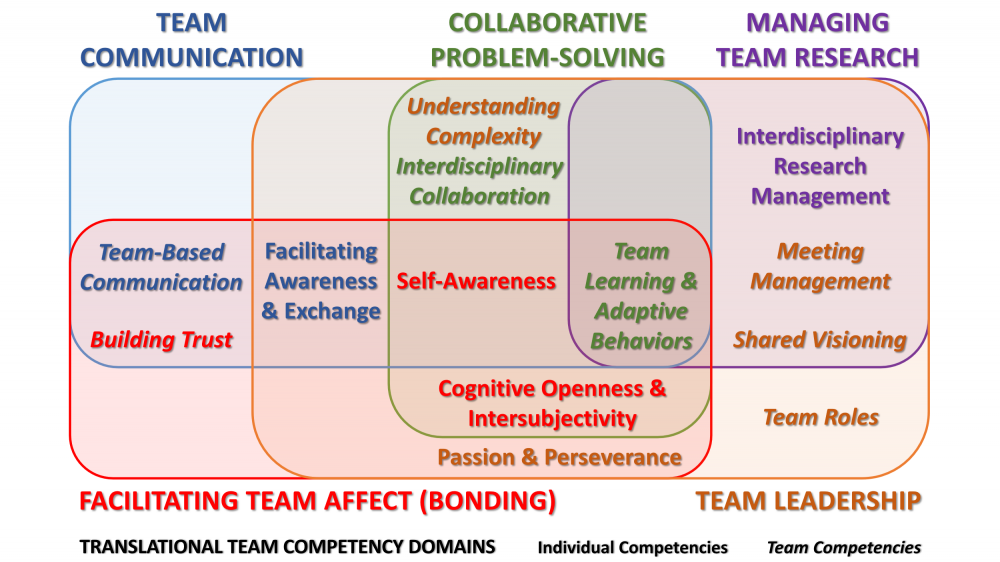
Team Science
The Institute of Translational Health Sciences Team Science core supports the development, performance, and recognition of high functioning interdisciplinary research teams through education, training, and institutional policies.
What We Do
Since 2017, ITHS Team Science education and training has been offered through a collaboration with the UW Center for Health Sciences Interprofessional Education, Research and Practice (CHSIE). The work we do is informed by the concept of individual and team competencies (read more here). Our ultimate goal is to build diverse, agile teams that can address challenges and opportunities in clinical and translational research.
Services & Offerings
Team Science provides a number of resources and services to help research teams become more efficient and effective by building stronger team dynamics and processes. Our services include various offerings to improve you and your team’s skills in enhancing communication, building trust, managing research, providing supportive leadership and demonstrating problem-solving communications.
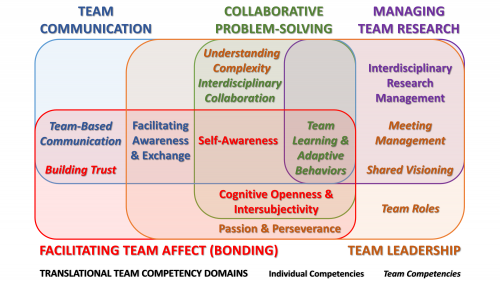
Team Science Workshop
Team Science Workshop
Interactive workshop attended by research teams. The objective of this training is to enhance team functionality and effectiveness. This multi-day training is designed to be both highly interactive and accessible to teams from across the WWAMI region. This workshop may be offered in person or virtually.
Topics include:
- Teamwork & team processes
- Awareness and adaptability of working styles and modes
- Addressing conflict
- Lean Project Management (e.g., project organization, goal setting, planning)
- Giving and receiving feedback
- Meeting management
- Communication
- Leadership skills
Cost: No cost
ANNUAL WORKSHOP PAGES
Team Science Seminar Series for Individuals
Team Science Seminar Series for Individuals
This 6-part series is hosted at 12pm Pacific the second Thursday of every month from October through March. The seminars are designed to develop individual team science competencies to prepare for effective collaborative research. Sessions focus on topics such as building and leading teams, handling conflict, multi-PI grants and designing research for health equity. Participants can attend live virtual sessions or watch online when their schedules allow. There is a certificate offered each year for those attend and complete evaluations for all of the sessions. Each year builds on the prior year’s content, adding to and diving deeper into topics.
Read an interview with Team Science Co-Director Brenda Zierler on the Team Science Seminar Series here.
Team Science Seminar Series 2025–2026
Read about the 2025–2026 series here.
Team Science Seminar Series 2024–2025
(Please note that a certificate of completion is no longer available for these recorded sessions.) Read about the 2024–2025 series here.
| Session Title | Speaker(s) | Date | Event Page Link |
|---|---|---|---|
| Introduction to Leadership Competencies for Team Science | Erin Blakeney and Brenda Zierler | 10.03.24 | Watch Introduction to Leadership Competencies video |
| Facilitating Team Meetings | Jennifer Sprecher | 11.07.24 | Watch Facilitating Team Meetings video |
| Leadership Journeys | Peggy Odegard | 12.05.24 | Watch Leadership Journeys video |
| Developing Your Individual Development Plan for Leadership | John Amory | 01.09.25 | Watch Individual Development Plan video |
| Resources to Support Emotional Intelligence and Personal Growth | Brenda Zierler and Jennifer Sprecher | 02.06.25 | Watch EI and Personal Growth video |
| Mentorship and Leadership at Different Career Stages | Brenda Zierler and Jennifer Sprecher | 03.06.25 | Watch Mentorship and Leadership video |
| The Art of Sculpting Our Communication Skills: Toolkits for Conflict Management | Sara Kim | 04.03.25 | Watch The Art of Sculpting video |
| You Don't Always Need to Say Yes: Aligning Goals to Opportunities | Jennifer Sprecher and Brenda Zierler | 05.01.25 | Watch You Don't Always Need to Say Yes video |
Team Science Seminar Series 2023–2024
(Please note that a certificate of completion is no longer available for these recorded sessions.) More information about the 2023–2024 series here.
| Session Title (subject to change) | Date | Event Page Link |
|---|---|---|
| Introduction to the Team Science Seminar Series 2023–2024: Teamwork and Collaboration | October 5, 2023 | Watch event video |
| Kicking Off a New Team | November 2, 2023 | Watch event video |
| Team Writing: Opportunities & Challenges | December 7, 2023 | Watch event video |
| Tools for Collaboration | January 4, 2024 | Watch event video |
| Promoting Psychological Safety at Workplaces | February 1, 2024 | Watch event video |
| Strategies to Identify and Engage with Community Partners | March 7, 2024 | Watch event video |
| Getting Promoted as a Team Scientist | April 4, 2024 | Watch event video |
| Developing Team Management Plans for Grants | May 2, 2024 | Watch event video |
| Leadership: Managing Up and Delegation | May 23, 2024 | Watch event video |
| Mixed Messages: Bias & Microaggressions | June 6, 2024 | Watch event video |
Team Science Seminar Series 2022–2023
(Please note that a certificate of completion is no longer available for these recorded sessions.) More information about the 2022–2023 series here.
| Session Title | Event Page Link |
|---|---|
| Introduction to the Team Science Seminar Series 2022-2023: Why is Team Science Important? | Watch event video here |
| Building Self-Awareness and Leadership Traits for Team Effectiveness | Watch event video here |
| Successful Meeting Management: Setting the Foundation | Watch event video here |
| Building and Sustaining Your Interdisciplinary Research Team | Watch event video here |
| Growth Mindset & Giving and Receiving Feedback | Watch event video here |
| Leading with Intention: Foundational Skills for Handling Interpersonal Conflict | Watch event video here |
| Creating Engagement: Facilitation from Chaos to Construct | Watch event video here |
| What Does a Successful Multiple-PI/Collaborative Grant Application Look Like: An Academic Community Panel | Watch event video here |
| Designing and Conducting Research for Health Equity | Watch event video here |
| Engaging Communities in Interdisciplinary Research | Watch event video here |
Team Writing Resources
Team Writing Resources
Explore our Interprofessional Team Writing Toolkit. This toolkit is designed for researchers of all levels interested in improving how they collaborate to conduct scholarly writing across professions, disciplines, and institutions. The toolkit includes instructions and team writing tools including tracking forms and authorship agreement forms.
Learn more: https://collaborate.uw.edu/online-training-and-resources/interprofessional-team-writing-toolkit/
Cost: No cost
Online Appointment, Promotion, and Tenure Resources
Online Appointment, Promotion, and Tenure Resources
An online toolkit designed to aid those involved in the Appointment, Promotion, and Tenure (APT) process to recognize, support, and reward interdisciplinary research and collaboration. The APT Toolkit provides strategies, template and exemplars for early-career faculty, department chairs, and APT committees.
Please note related faculty code changes: “BE IT RESOLVED, that the UW Faculty Senate recommends that all departments, units, and schools develop policies, definitions, and rubrics that include metrics for assessment (e.g., categories of expectations, examples of indicators of impact) to standardize and communicate their values and norms for community-engaged scholarship as an activity distinct from service. This process should accomplish the following: 1. Include a review of promotion and tenure criteria for recognition of community-engaged scholarship and removal of obstacles to valuing community-engaged scholarship (e.g., expectation for a certain number of publications in a certain amount of time, expectation for solo publications, expectation for publication outlet [academic versus other media]). These rubrics and criteria, in considering community-engaged scholarship, should maintain or enhance acknowledgement of diversity, inclusion, and equity-focused scholarship. 2. Ensure that all departments, units, and schools intentionally “onboard” new faculty and train evaluators (e.g., voting faculty, chairs, deans, etc.) with the goal of introducing policies and rubrics related to community-engaged scholarship and other relevant expectations for promotion and tenure. 3. Implement parallel processes and acknowledgement of community-engaged activities, as appropriate, for individuals in non-tenure-track roles, such as research faculty, research scientists, and other professional staff. BE IT FURTHER RESOLVED, that the UW Faculty Senate recommends establishment of a universitywide resource or office for strengthening support of collaborative, community-engaged, and interdisciplinary research, teaching, and service. BE IT FURTHER RESOLVED, that the UW Faculty Senate supports drafting of Class A legislation to amend the existing faculty code in Chapter 24 – Section 32 which addresses the scholarly qualifications of faculty, to include community-engaged research.”
Learn more: https://collaborate.uw.edu/programs/team-science-initiative/apt-toolkit/
Cost: No cost
ITHS Career Development Series (CDS)
ITHS Career Development Series (CDS)
Access recorded sessions focused on skills for Team Engagement. Each session is 60-90 minutes long and can be accessed on demand via the ITHS website.
Team science topics include:
- Conflict management
- Time management
- Team Charters
- Meeting management
- Leadership
- Collaboration
Cost: No cost
Lean Project Management Training
Lean Project Management Training for Research Teams
Live or virtual trainings for 6-40 individuals, ranging from 5-20 contact hours. These sessions provide tools and techniques to better manage and execute projects.
Service includes planning, customizing, communicating, delivering on objectives, and following-up.
Cost: training fees apply
Facilitation and Consultation
Facilitation and Consultation for Research Teams or Centers
Live or virtual trainings for new or established research teams or centers. This service is a great way to kick-off a new grant or for established research teams having challenges in meeting goals.
This service includes strategic planning, developing team agreements, working on a team project, or working through a specific issue.
In addition, this service can also include surveys, focus groups, or 1:1 interviews to gain team input prior to determining training objectives and approach.
Cost: Training fees apply
Executive Coaching
Executive Coaching
1:1 coaching by a certified trainer to support client needs.
Examples of topics include:
- Career planning
- Life balance
- Working within a male-dominated culture
- Working with various cultural biases
- Leadership progression (sometimes focused on application for an open position)
- Dealing with challenging interpersonal relationships
- Building a team (i.e. research, education, clinical, etc.)
- Becoming more comfortable with public speaking
- Leading a department
- Meetings within a department
Cost: training fees apply
Our Team
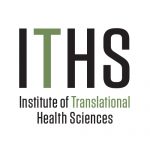
Erin Blakeney, PhD, RN
Faculty Co-Director

Brenda Zierler, PhD, RN, FAAN
Faculty Co-Director
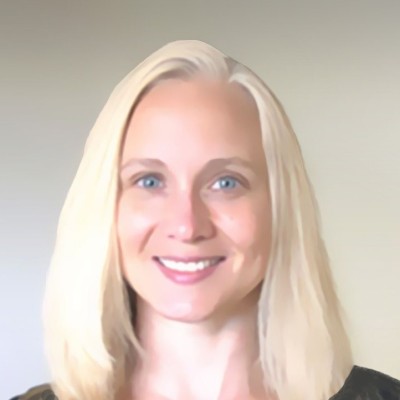
Laurel Barchet
Program Specialist
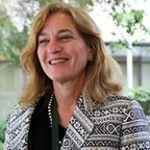
Jennifer Sprecher
Team Trainer
Contact Us
To learn more about Team Science and how we can help your research team, please email Laurel Barchet.




